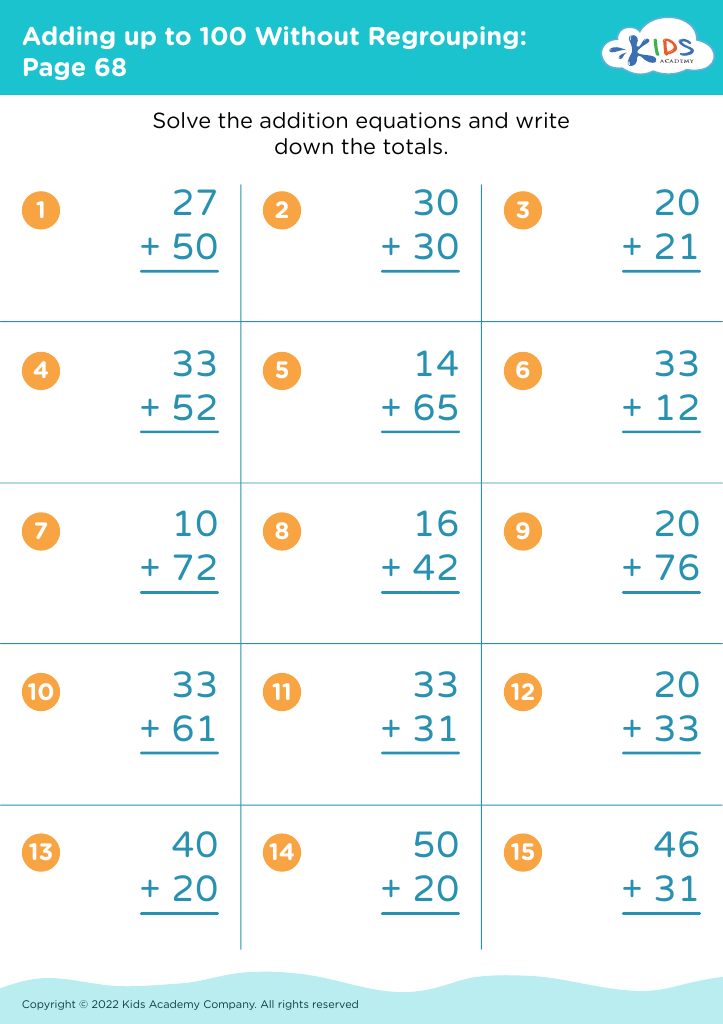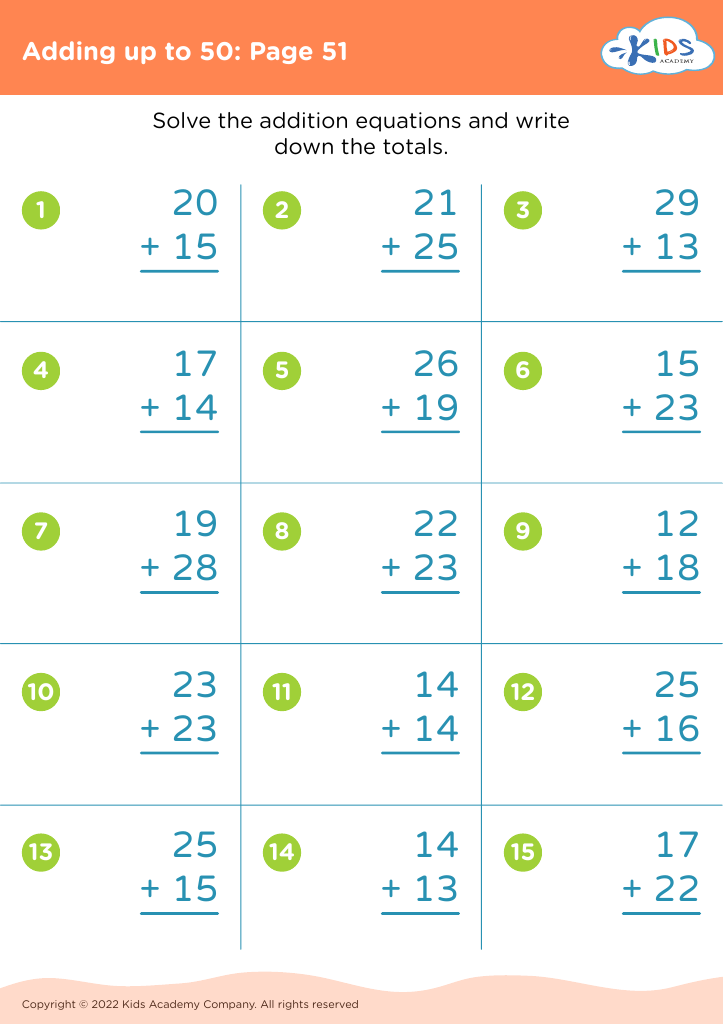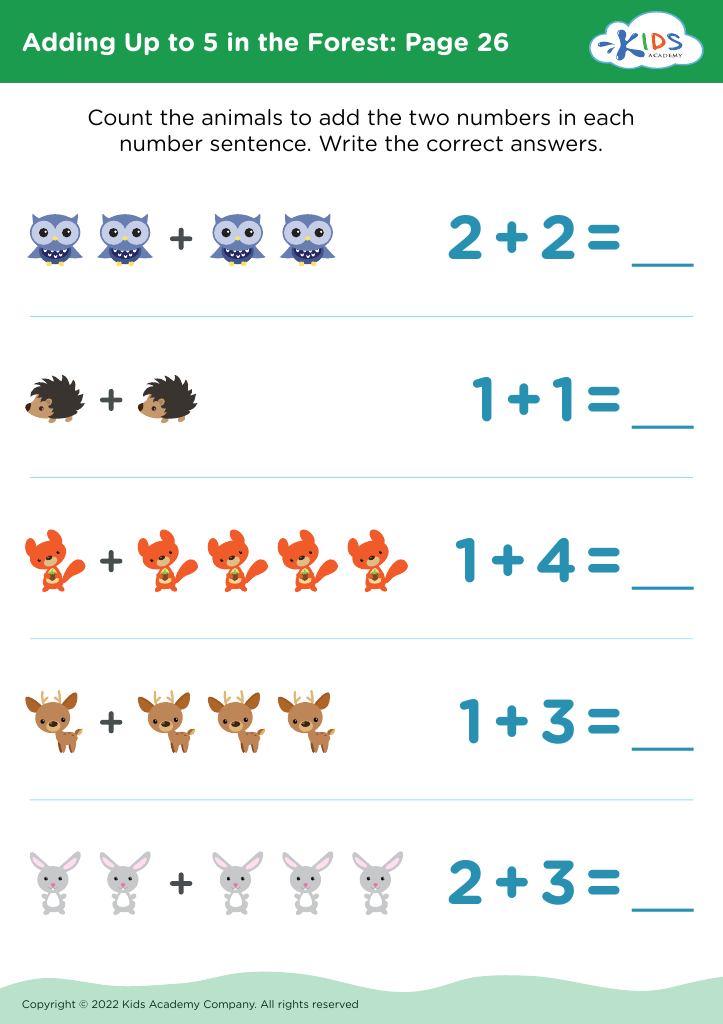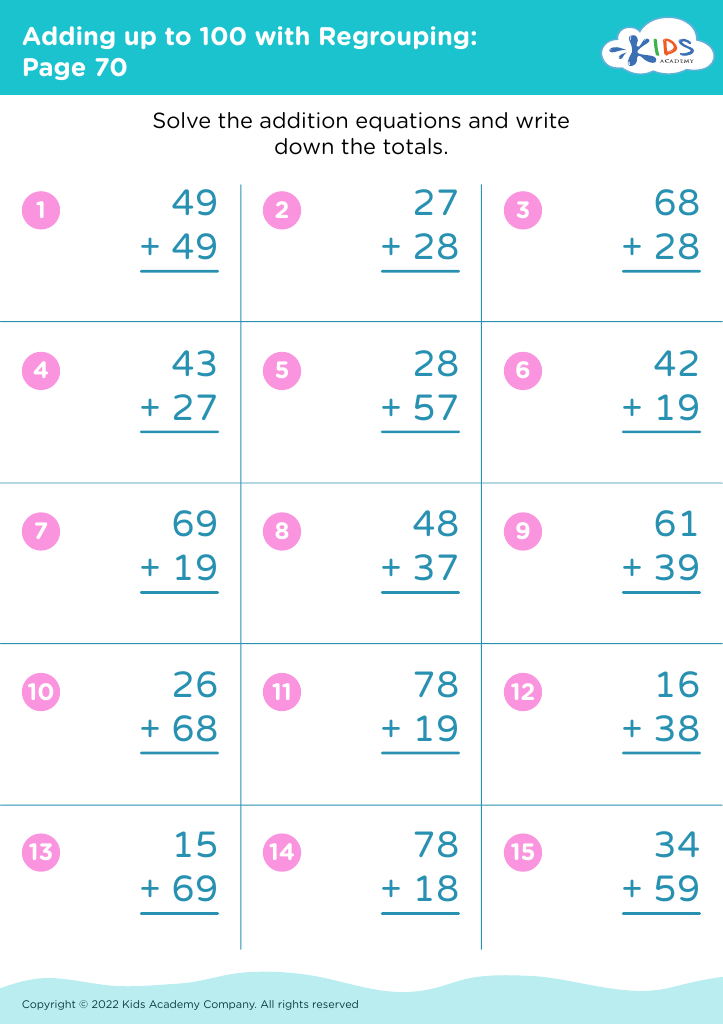Developing problem-solving skills Addition Worksheets for Ages 4-9
6 filtered results
-
From - To
Enhance your child's problem-solving abilities with our specially designed Addition Worksheets for Ages 4-9. Our engaging activities focus on building a strong foundation in basic math skills while promoting critical thinking and logical reasoning. With a wide range of enjoyable exercises, children will develop their addition skills through fun, interactive tasks that progressively increase in difficulty. Perfect for home or classroom use, these worksheets support confident, independent learning with clear instructions and vibrant illustrations. Give your child the tools they need to excel in math and beyond with our comprehensive collection of problem-solving addition worksheets. Start your math journey with Kids Academy today!
Developing problem-solving skills in addition for children ages 4-9 provides a foundational cornerstone for future academic success and everyday math proficiency. At this critical age, their brains are highly receptive to learning new concepts, making it easier to build strong mathematical skills. Engaging problem-solving contexts help children understand and apply addition in real-world scenarios, nurturing not just their ability to compute sums, but also their analytical and logical reasoning skills.
Parents and teachers play a pivotal role in fostering this understanding. By introducing addition through games, stories, or relatable problems, they help demystify what can often be an intimidating subject. Building these skills early reduces math anxiety, ensuring children feel more confident and capable in their academic pursuits. Confidence in math also promotes persistence, resilience, and a growth mindset, useful traits in all areas of learning.
Additionally, problem-solving in math encourages a structured approach to tackling challenges, essential for overall cognitive development. This enduring trait benefits children not just in educational settings, but in everyday life situations requiring decision-making, planning, and critical thinking, thus preparing them for a successful future. Consequently, prioritizing problem-solving skills in addition fosters well-rounded intellectual growth, instilling lifelong cognitive benefits and practical capabilities.


























